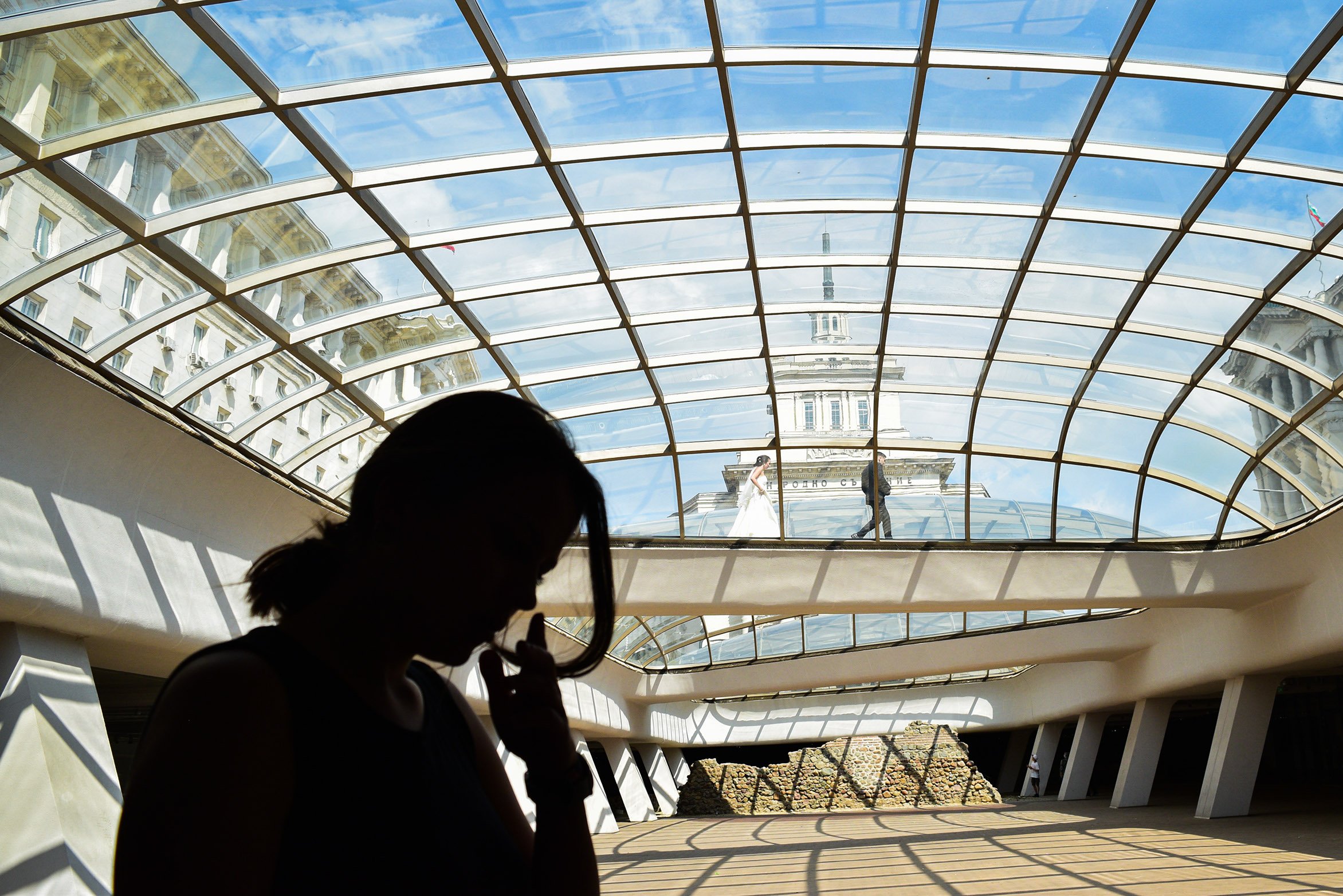BULGARIA,
португалка съм
set.2016 – set.2018 Nikon D5300
In 2016, I arrived in Bulgaria to begin my European Voluntary Service. I wasn’t a photographer back then, but that never stopped me from taking photos. Today, I look at these images with much kinder eyes.
For those two years, the expressions I said the most in my interactions were “португалка съм!” (“I’m portuguese!”), and “Ronaldo!”.

I arrived in Sofia on the 17th September 2016. This was the first photo I took, the morning after.


In Bulgaria, the owner of a flat is also the owner of its outside walls. For that reason, colourful commie blocks tend to be common. On the right, the entrance of the first building I lived in, an old soviet infrastructure. On the coldest night that year (-17 Cº) we had no electricity. I do believe my room in Portugal was always a lot colder.


Sofia: an european capital being built on top of a its visible poverty struggle. In 2022, the biggest rate of people at risk of poverty, incapable of paying every two days for a meal, was registered in Bulgaria (Source: Eurostat, Diário de Notícias). On the right, a friend of mine and I observe the photoshoot of a young wedding couple in the main square.

My first day of snow. I would take photos until I go to bed.
I felt a harsh environment several times. (1) On the strong presence of cement, barbed wire and crows. (2) On the industrial sites mixed with urban residential areas. (3) On the intimidating demonstrations of soccer hooligans. (4) On the reinforcements of security forces for the Pride march - Amnesty International activists would be attacked later that day.




On Bulgarian minorities: Romani community. A community living in segregated neighborhoods, most often self-built, with limited access to water and electricity. A segregation also reported in healthcare access (source: Collective Complaint, European Roma Rights Centre v. Bulgaria).



On Bulgarian minorities: muslim communities. The photos above are from Ribnovo: a village in the Western Rhodope Mountains known for its distinct Pomak (Bulgarian Muslim) culture and traditions, particularly its unique wedding customs. Here, english was poorly spoken, even with the english teacher we had the help of a translator. Yet, the local school director gave us the warmest welcome and took us for lunch in the school cafeteria. When I asked the teachers if the young folks would return after their studies in bigger cities, they happily and naturally answered “yes!”.









